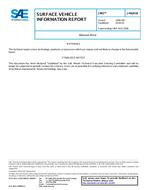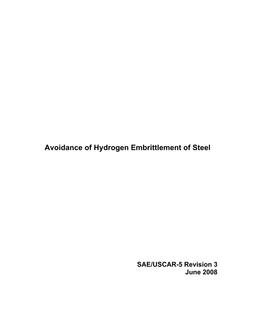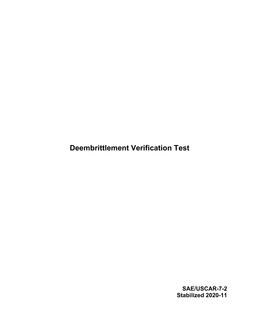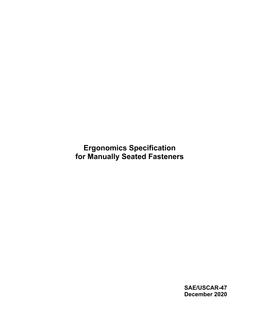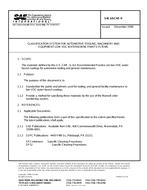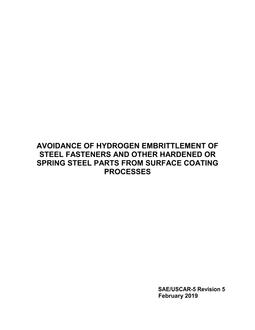Description
An enormous economic loss, as well as a waste of natural resources, is incurred world-wide as a result of wear of components and tools. Any effort expended in an attempt to reduce this loss is indeed worthwhile. The purpose of this SAE Information Report is to present the current state of knowledge of abrasive wear. This report, therefore, covers wear, or the undesired removal of metal by mechanical action, caused by abrasive particles in contact with the surface. It does not concern metal-to-metal wear or wear in the presence of an abrasive free lubricant.
Abrasive wear occurs when hard particles, such as rocks, sand, or fragments of certain hard metals, slide or roll under pressure across a surface. This action tends to cut grooves across the metal surface, much like a cutting tool.
Abrasive wear is of considerable importance in any part moving in relation to an abrasive. Tools in contact with the ground, such as plows, cultivators, scraper and bulldozer blades, are intended to operate in abrasives. Machines for processing ores such as crushers and for grinding of natural minerals such as ball mills are also subjected to abrasive wear. Contact with abrasives by many other machinery components may not be a normal circumstance, but, since it may inadvertently occur, must be considered.
Increased hardness usually increases wear resistance but also increases brittleness, which can cause fracture of the tool in rocky soils. Thus, the selection of a suitable material for use in a variety of abrasive conditions is necessarily a compromise between wear and brittle fracture resistance.
This report presents present day information on the fundamentals, testing methods and specific solutions for abrasive wear problems. The limited information reflects the current lack of knowledge on this subject. However, it is a starting point. Further work is necessary to develop general design information.
Product Details
- Published:
- 01/09/2018
- Number of Pages:
- 22
- File Size:
- 1 file , 690 KB
- Redline File Size:
- 2 files , 3.4 MB

